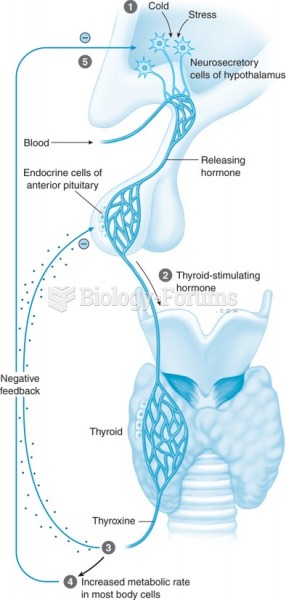|
|
|
Never take aspirin without food because it is likely to irritate your stomach. Never give aspirin to children under age 12. Overdoses of aspirin have the potential to cause deafness.
Green tea is able to stop the scent of garlic or onion from causing bad breath.
In 1885, the Lloyd Manufacturing Company of Albany, New York, promoted and sold "Cocaine Toothache Drops" at 15 cents per bottle! In 1914, the Harrison Narcotic Act brought the sale and distribution of this drug under federal control.
Many people have small pouches in their colons that bulge outward through weak spots. Each pouch is called a diverticulum. About 10% of Americans older than age 40 years have diverticulosis, which, when the pouches become infected or inflamed, is called diverticulitis. The main cause of diverticular disease is a low-fiber diet.
Automated pill dispensing systems have alarms to alert patients when the correct dosing time has arrived. Most systems work with many varieties of medications, so patients who are taking a variety of drugs can still be in control of their dose regimen.
 Illustration of an embolus floating in an artery. The embolus will become lodged in a blood vessel t
Illustration of an embolus floating in an artery. The embolus will become lodged in a blood vessel t
 Mechanism of the thyroid gland showing a stimulus (1) that causes the release of TSH (2) and then ...
Mechanism of the thyroid gland showing a stimulus (1) that causes the release of TSH (2) and then ...





